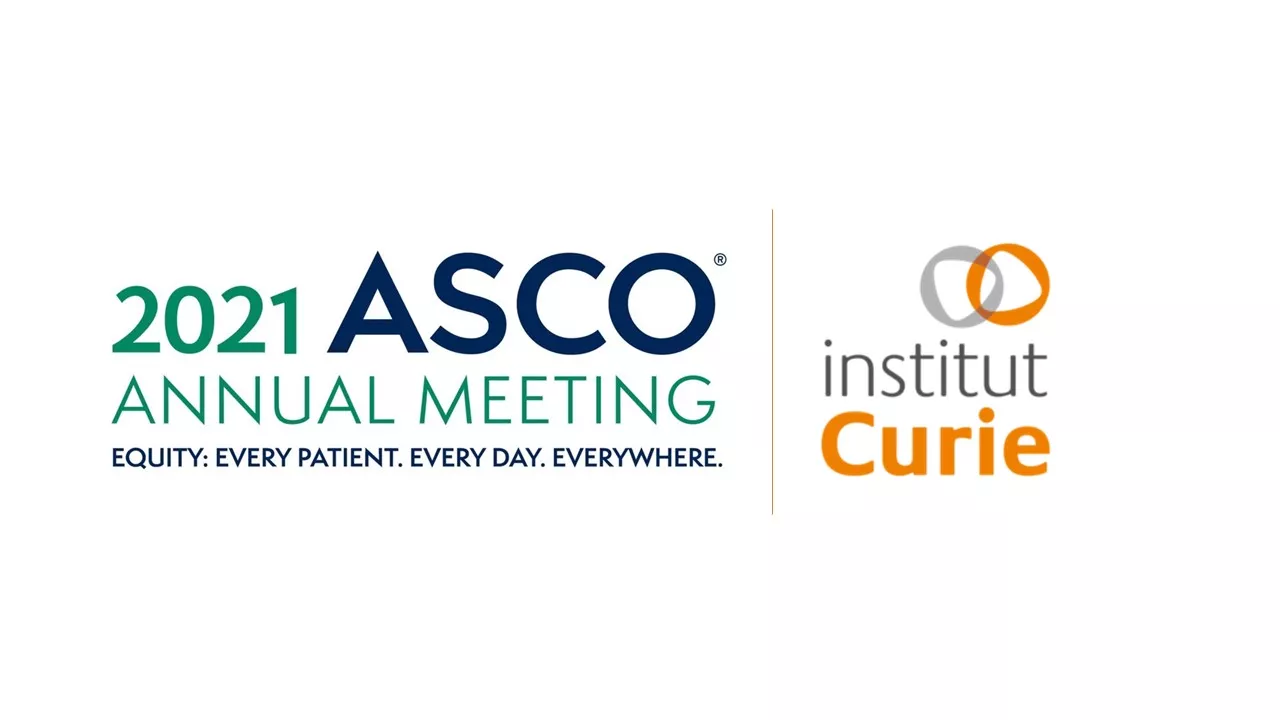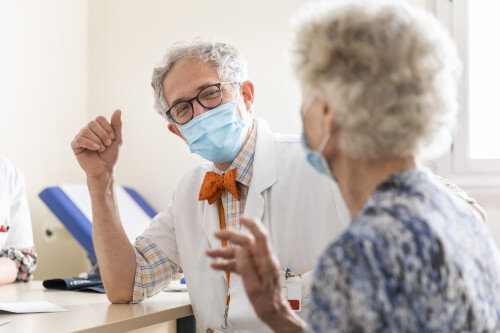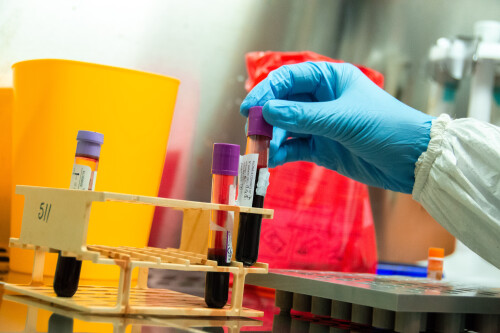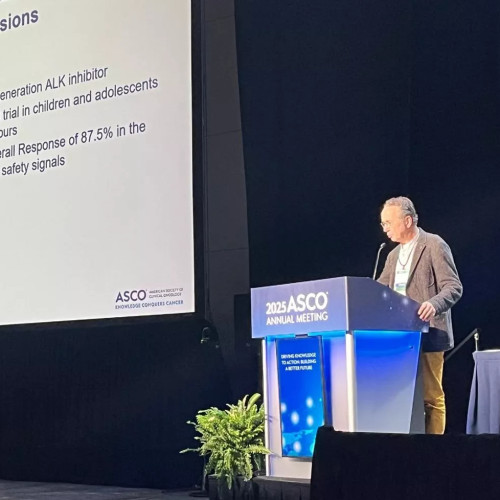Nanoparticles: primising efficacy in head and neck cancers
Hafnium nanoparticles (NBTXR3, developed by the company Nanobiotix) may increase the efficacy of radiotherapy. Once injected into the tumor, these nanoparticles boost the effect of radiation. The radiation interacts with the hafnium nanoparticules, generating more free radicals than with radiotherapy alone.
In 2019, Prof. Sylvie Bonvalot, oncological surgeon specializing in soft tissue sarcomas at Institut Curie, demonstrated the efficacy of nanoparticles in soft tissue sarcomas. But what about long-term toxicity? She presented long-term safety studies that show that there was no difference in terms of toxicity between NBTXR3 plus radiotherapy and radiotherapy alone. “Surgery and radiotherapy cure half of cancers and it is crutial to improve our loco-regional treatments,” explains Prof. Sylvie Bonvalot. “Our data on the long-term innocuity of nanoparticles are encouraging since these nanomedicines are being assessed in many other locations or histological sub-types, particularly in head and neck cancers at Institut Curie”.
Indeed, a phase I clinical trial is conducted in the Early Clinical Trials department at Institut Curie, headed by Prof. Christophe Le Tourneau. The results of a study conducted on patients with head and neck cancers were also presented at the ASCO meeting. “The use of NBTXR3 nanoparticles was found to be effective in patients whose therapeutic options are limited to radiotherapy alone. These new results are promising and have led us to set up a pivotal phase 3 clinical trial on a larger number of patients,” explains Prof. Christophe Le Tourneau.
|
> Poster session “Sarcoma” - June 4 at 3:00pm (French time) > Poster session “Head and Neck cancer” - June 4 at 3:00pm (French time) |
Immunotherapy and nanomedicine: a combination with a promising future
By stimulating the body’s defenses, immunotherapy helps fight the tumor. Today, 30% of patients receive immunotherapy treatment and the stakes are high for improving its effectiveness. To increase the benefits of immunotherapy, physicians are exploring the effects of treatment combinations. Within this context, Prof. Nicolas Girard, oncological pulmonologist who heads the Curie - Montsouris Chest Institute, presents the results of a study conducted in patients with several types of cancer, combining immunotherapy with an anti-angiogenic nanomedicine. This nanobody - an antibody ten times smaller than a conventional antibody capable of targeting intracellular elements - acts by destroying the blood vessels around the tumor by “asphyxiating” it. The clinical trial reveals a good safety profile and shows preliminary anti-tumor activity in different types of tumor.
The originality of our study lies in an unprecedented combination of treatments and in the fact that it was conducted on several types of cancer. I am convinced that the future of immunotherapy lies in this type of treatment combination, enthuses Prof. Nicolas Girard, who will be the Invited Discussant for bronchial cancers with mutation of the EGRF at the ASCO meeting this year.
| Poster session “Developmental Therapeutics – Immunotherapy”- June 4 at 3:00pm (French time) Abstract 2579: Phase Ib study of BI 836880 (VEGF/Ang2 nanobody) plus ezabenlimab (BI 754091; anti-PD-1 antibody) in patients (pts) with solid tumors. |
Pediatric cancer: a new targeted therapy in tumors of the central nervous system
Larotrectinib is a medication that targets a very specific and very rare molecular alteration: the fusion of NTRK genes. Already used in the United States and in Europe, this medication has proven its effectiveness in certain locations but there are very few data on tumors of the central nervous system (CNS). An international multi-center study conducted on 33 patients (mostly children) suffering from primitive tumors of the CNS shows positive and lasting results obtained with larotrectinib in terms of response and survival in children whose tumor presents this NTRK fusion.
“The results that we are presenting this year at the ASCO meeting are encouraging; they justify systematic screening of NTRK fusion in some glial tumors in children, and the use of this new medication as a first-line treatment in rare brain tumors,” concludes Prof. François Doz, Deputy Director for clinical research, innovation and teaching at the SIREDO center (Care, Innovation & Research in Childhood, Adolescent and Young-Adult Oncology) and last author of the study.
| Oral Abstract Session – Central nervous system tumors – June 7, 2021 at 2:00pm (French time) Abstract 2002: Efficacy and safety of larotrectinib in adult and pediatric patients with tropomyosin receptor kinase (TRK) fusion-positive primary central nervous system (CNS) tumors. |
Find out more about the ASCO 2021 annual meeting: https://conferences.asco.org/am/attend
About Institut Curie
Institut Curie, France’s leading cancer center, combines an internationally-renowned research center with a cutting-edge hospital group, which treats all types of cancer, including the rarest. Founded in 1909 by Marie Curie, Institut Curie employs 3,600 researchers, physicians, and health professionals across three sites (Paris, Saint-Cloud, and Orsay), all of whom contribute to its three missions of treatment, teaching, and research. A private foundation with public utility status, Institut Curie is authorized to accept donations and bequests, and thanks to the support of its donors, is able to accelerate discoveries and improve patient treatment and quality of life. Find out more at curie.fr
Press Contacts:
Laure Calixte: laure.calixte@havas.com – +336 33 81 81 17
Elsa Champion: elsa.champion@curie.fr - +337 64 43 09 28



